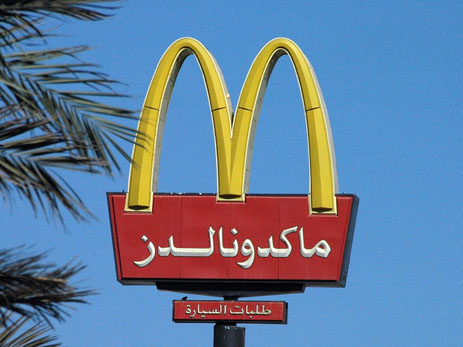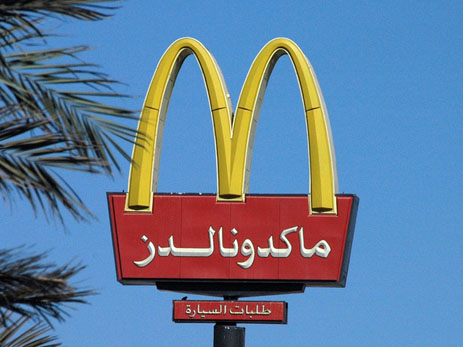 Tasty Hallal burgers aren’t the only thing the Saudis are pushing.Photo: Rabun WarnaSo far most of the attention on WikiLeaks’ Nov. 28 release of formerly secret U.S. diplomatic cables has been focused on what the cables reveal about Iran’s nuclear aspirations. But buried in these cables are tantalizing clues about the back-door negotiations that surrounded last year’s Copenhagen climate conference. A year later, many of the same negotiators are now in Cancun, where their motivations are likely to be the same. So what do these cables tell us about what to expect from current and future climate negotiations?
Tasty Hallal burgers aren’t the only thing the Saudis are pushing.Photo: Rabun WarnaSo far most of the attention on WikiLeaks’ Nov. 28 release of formerly secret U.S. diplomatic cables has been focused on what the cables reveal about Iran’s nuclear aspirations. But buried in these cables are tantalizing clues about the back-door negotiations that surrounded last year’s Copenhagen climate conference. A year later, many of the same negotiators are now in Cancun, where their motivations are likely to be the same. So what do these cables tell us about what to expect from current and future climate negotiations?
1. Nobody f*#ks with the Jesus Saudis
It’s not clear if the following is an actual secret or an open secret, but here goes: A cable dated Jan. 26, 2010, records Assistant Secretary of State Jeffrey D. Feltman, of the Bureau of Near Eastern Affairs, saying that Saudi Arabia’s minister of petroleum, Ali bin Ibrahim Al-Naimi, “was involved in crafting the final agreement” of the Copenhagen Accord.
The cable goes on to note that because Al-Naimi participated in the drafting process, Feltman and the U.S. were “counting on Saudi Arabia to associate itself with the accord by January 31.” That didn’t happen, even though Saudi Arabia’s lead negotiator later declared himself “satisfied” with the Copenhagen accord.
2. Saudi Arabia has the most to lose from any binding emissions targets, and will never sign on to them
The Saudis believe greenhouse-gas regulation is one of the greatest threats to their economic future, right up there with a nuclear Iran and internal political instability.
A second secret cable from ambassador to Saudi Arabia James Smith to Secretary of State Hillary Clinton, dated Feb. 11, 2010, lays it out:
Saudi officials are very concerned that a climate change treaty would significantly reduce their income just as they face significant costs to diversify their economy. We want to get beyond the obstructionism that Saudi negotiators have often shown during the negotiations and persuade senior leaders to work with us in a partnership to meet their strategic concerns, including by cooperating on developing solar and biomass energy. The King is particularly sensitive to avoid Saudi Arabia being singled out as the bad actor, particularly on environmental issues.
Most of the countries that have declined to sign on to the Copenhagen Accord contend that it has insufficient provisions for transfer of dollars from developed to developing nations to assist with climate-change adaptation.
But not the Saudis. In their view, climate-change regulations are as big an existential threat to their way of life as climate change itself. Even though the Copenhagen Accord was relatively toothless — it contained only voluntary targets that wouldn’t come close to averting catastrophic climate change — Saudi Arabia continues to refuse to sign it. Even though the country’s own oil minister had a hand in its composition! This stance fits with the country’s ongoing, vociferous denials of the reality of peak oil.
3. As long as binding international climate agreements work by consensus, Saudi Arabia is as big a threat to their success as China. The effort to reach binding emissions targets through consensus is permanently broken, QED
Asking Saudi Arabia, a country so rich in oil that it already expends half of what it digs up on electrical power generation, to sign on to climate agreements that have even the slightest chance of succeeding is like asking a drug dealer to start a rehabilitation clinic.
The only logical way forward is for the world’s biggest emitters and most vulnerable nations — i.e., everyone who doesn’t have a vested interest in inaction — to try to forge their own agreements and commitments, petro-states and obstructionists be damned.
Read more about WikiLeaks and climate change from Wonk Room and ClimateWire.


